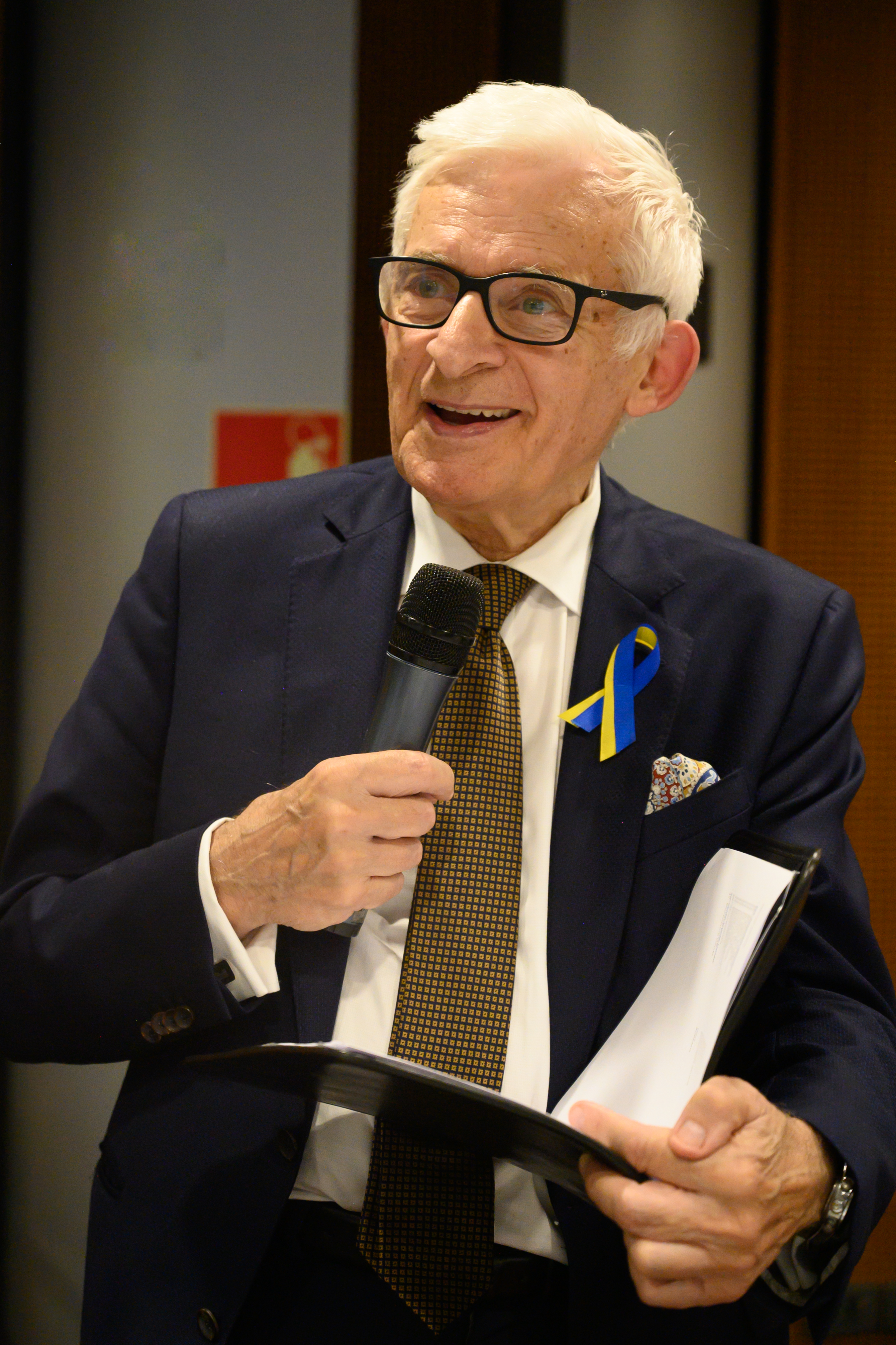Carbon Capture, Utilisation and Storage: part of the EU toolbox to achieve climate neutrality?
Chaired by Jerzy Buzek MEP, President of the EEF
Speakers:
Emmanuel Brutin, Public Affairs Director, CEMBUREAU
Antoine Hoxha, Director General, Fertilizers Europe
David Nevicato, Business Development and Partnership Director, CCS, Total Energies
Speaker from the European Commission (tbc)
Jerzy Buzek MEP, EEF President welcomed the participants to this EEF energy debate by emphasizing the need for available solutions, including CCUS, to attain EU’s climate neutrality objective by 2050. He underlined the pivotal role of these technologies, especially in addressing the challenges faced by hard-to-abate sectors.
Emmanuel Brutin, Public Affairs Director, CEMBUREAU explained that the cement industry is adopting a holistic approach to decarbonise the sector, by phasing out fossil fuels, having more circular processes and reducing the share of clinker in cement. Recognising the existence of some inevitable CO2 process emissions, Mr Brutin underlined the crucial role of CCS for his industry to comply with EU environmental targets. To enhance the technology, he stressed the need for favourable investment conditions in CO2 storage capacity and transport, for streamlined and harmonized permitting procedures for the entire value chain and for funding. Mr Brutin insisted that the cement industry is investing in carbon capture technologies and invited EU decision-makers to provide a clear legal framework for CCS and CCU.
Antoine Hoxha, Director General, Fertilizers Europe illustrated the importance of ammonia for the fertilizers industry, essential to secure EU’s domestic food production. Mr Hoxha emphasized the necessity and the capacity of his sector to effectively capture the CO2 emitted during the production process. But he explained that, out of the 20 million tonnes captured, only 8 million tonnes are actually used, mainly for sparkling beverages. Regrettably, the remaining 12 million are released back into the atmosphere, due to a lack of transport infrastructure and legal framework. Mr Hoxha thanked the European commission for putting back CCS on the table and called for EU’s openness to all available solutions.
David Nevicato, Business Development and Partnership Director, CCS, TotalEnergies provided the technology supplier perspective to the discussion, explaining that CCS is one of the solutions for the decarbonisation of industries. He underlined that the technology is a proven one, as CO2 is being stored since the 1970s and that it must be approached as a whole value chain, a prerequisite to make CCS effective and successful. Mr Nevicato welcomed the Commission’s open recognition of the important role of CCS in meeting climate objectives and also analysed the missing elements for a quick deployment of CCS: risk mitigation for the investors, facilitation of transport and shipping of CO2, reduction of technical costs, and business support for the decarbonisation of industries.
The Q&A session focused on a wide variety of aspects concerning CCUS, including the practical feasibility of the legislative framework, the improvement of CO2 transportation, cooperation with neighbouring countries on CO2 storage, the lifecycle of CCS projects, the ratio CCS-CCU, the environmental impact of CO2 storage on soils and the cost effectiveness of ammonia.



